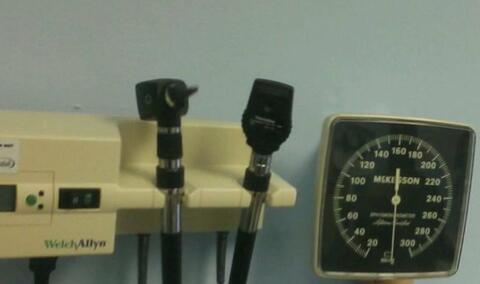HIV is a treatable, chronic illness thanks to major advancements in HIV research. Getting tested for HIV is the best way to help end HIV in your community, according to health professionals.
HIV testing is an important step in protecting your health and the health of your sex partner(s).
June 27 marks the annual observance of National HIV Testing Day (NHTD), a day to encourage everyone to get tested for HIV.
This year's theme, "HIV Testing is Self-care", emphasizes that knowing your HIV status is an important act of taking care of yourself. Make your sexual health a priority.
Testing is the only way to be sure of HIV infection. It is not only important to know your own HIV status but also the HIV status of your sex partner(s).
According to officials, many testing options and locations are available for fast, free, and confidential HIV testing.
If you would rather test in the privacy of your own space, you can use an HIV self-test. For NJ testing locations, contact the NJ AIDS/HIV/STD Hotline at 1-800-624-2377 or Chat Here.
Health professionals say that everyone who is sexually active and/or uses drugs should make HIV testing part of their routine healthcare. Anyone, regardless of race, ethnicity, age, gender identity, sexual identity, or sexual orientation, can get HIV or pass HIV to others.
Some sex practices and behaviors carry a higher risk of exposure to HIV than others. If you are at higher risk for HIV, get tested for HIV more often.
It's common for someone to pass HIV to others through sex or drug use without knowing it.
According to health professionals, many people live with HIV for years before being diagnosed and starting treatment.
Testing not only helps diagnose people who think they may have been exposed to HIV, it also diagnoses people who didn't know they were living with HIV.
Professionals said that proven prevention options like PrEP (pre-exposure prophylaxis) and PEP (post-exposure prophylaxis) are available to reduce new HIV infections.
Starting treatment with HIV medicine (called antiretroviral therapy or ART) as soon as possible after being diagnosed is key to lowering the amount of HIV in the body.
According to health professionals, continuing treatment keeps the virus under control and helps people with HIV stay healthy, live longer, and lower their risk of HIV-related illnesses. It also prevents them from passing HIV to others.
Although there is no cure for HIV, testing and early detection of HIV leads to better health outcomes for people with HIV.
Not only is HIV testing key to living healthy with HIV, it's an important link to prevention services for those who do not have HIV.
If you test positive for or have HIV:
- continue using safer sex practices to lower your risk of passing HIV
- start HIV treatment right after getting your positive test result
- treatment is recommended for all people with HIV, no matter your age, how long you've had HIV, or how healthy you are
- share your HIV status with previous and current sex partners(s) and anyone you share needles, syringes, or other drug-injection materials/equipment
- get and keep an undetectable viral load (very low amount of HIV in the body), so you can stay healthy and not pass HIV to others through sex. (Undetectable=Untransmittable or U=U)
- continue using condoms (external or internal) the right way every time you have sex to prevent getting common sexually transmitted infections (STIs)
If you test negative for or do not have HIV:
- continue using safer sex practices to lower your risk of getting HIV
- talk to your sex partner(s) about testing and their HIV and STI status
- make testing part of your yearly health checkups. If you are at high risk for HIV, get tested more often
- talk to your healthcare provider about using HIV medicines to prevent getting HIV if you are at high risk of getting HIV or were recently exposed to HIV
- PrEP (pre-exposure prophylaxis) or PEP (post-exposure prophylaxis)
- continue using condoms (external or internal) the right way every time you have sex to prevent getting common sexually transmitted infections
Testing is key to ending the HIV epidemic.
New Jersey offers free HIV and other STI services to all state residents via the hotline.
Knowing who to call for resources and information is the first step in ending the HIV epidemic in New Jersey.
The hotline is staffed by health professionals (doctors, nurses, and pharmacists) available 24 hours a day, seven days a week, to provide free, confidential help.
Call: 1-800-624-2377 or Chat Here.
- Referrals for testing, prevention, treatment and other related services
- Prevention and treatment information for HIV, hepatitis and other STIs
- Information on the side effects of medicines used to treat HIV and other STIs
- Referrals to PrEP (pre-exposure prophylaxis) and PEP (post-exposure prophylaxis) services
- Counseling and treatment locations
- Referrals to harm reduction centers (syringe access available)
- Partner notification services
- New Jersey's AIDS Drug Distribution Program (ADDP)
